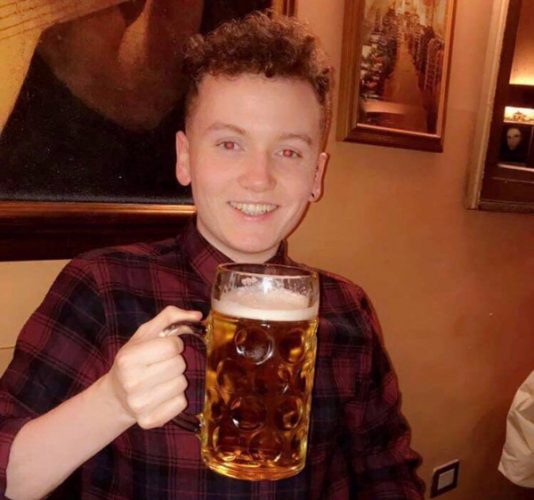Gay inclusion has come a long way, but as this young man’s journey shows, there’s still work to be done.
A feature by Nerve writer Lisa Worth
In an era considered to be more enlightened, it’s easy to believe that struggles around sexuality have been consigned to ancient history.
But Jamie Johnston’s story illustrates that challenges still exist for a young, gay man.
Jamie, 23, was born in Donegal, in the Republic of Ireland, to a typical Catholic family, and by the time he was 13 he recognised his attraction to boys. It took another eight years though, before he fully acknowledged his sexuality.
He said: “At school boys called me a gay fag, queer, which made me feel shit. They even chalked up homophobic graffiti. But it made me think, am I gay? I became de-sensitised to it [the abuse] over time. Bottled a lot up.”
There was no school education about homosexuality, and Donegal was too small to be anonymous. Although there were a couple of older gay men who had been accepted in the town, for Jamie life in such a small community felt too exposed.
He moved to Liverpool to study for a degree, where he felt more able to live a more authentic life, but his family still didn’t know. The day he told his Mum remains vivid in his memory.
After wrestling with the conversation for months, he finally found the courage to tell her that he was gay, but it didn’t go as he’d hoped. His Mum’s reaction was a disappointment.
He said: “I don’t want to say she was negative, I thought it at the time, but on reflection it was just a complete shock. It wasn’t the big hug I was hoping for, because she was too shocked. She just walked around the room, silent.”
Jamie regrets how his own disappointment transferred as hostility and defensiveness, and rather than talking it through properly with his Mum, he left.
Monosyllabic telephone conversations compounded the sadness and confusion between them as “she felt as though she had lost a part of me.”
Over time communication improved and he began to drip feed details about his new relationship, but for the moment, Jamie still hasn’t had the conversation with his Dad.
With tragic irony, the first time Jamie was subjected to a hate crime relating to his sexuality was in the city that he had felt he could relax – Liverpool.
While out with a female friend he was attacked and kicked in the back of the head, and his friend was punched in the face for defending him.
Jamie said: “At the time I was more worried about my friend, but the following day when I was talking with the police, it suddenly sank in. Did that really happen? For about a week I was frightened to go out. The actual kick didn’t hurt so much, it was just the question of why? Why did they do this?”
The attack triggered dormant mental health issues, manifesting as self-harm, and instigated at the time that his first gay relationship had ended.
He said: “There was some heartbreak, but more than that it was the fear of having to try again with another boy. It took a lot of courage. Denying myself food somehow made me feel better – when I felt so shit within myself – still scared to come out to certain people.”
Jamie is now in a settled relationship, something that he feared he would never find, and looks forward to visiting Donegal with his partner.
The Irish Republic is a changing world, partly due to Taoiseach Leo Varadker, who has demonstrated that his sexuality has no bearing on how he does his job.
But Jamie is fully aware that the challenges haven’t ended yet.
He said: “We want to go travelling, but I know that there are still many parts of the world where we won’t be accepted, which is worrying. And I still look forward to when – even here – we don’t have to do this “coming out” thing. After all, do you hear of heterosexuals having to “come out” as straight?”
As a society we have come a long way since 1967 when the Sexual Offences Act decriminalised homosexuality, and schools in the UK offer a far more comprehensive sex education than was the case even ten years ago.
But according to Amnesty International, between April 2015 and March 2016, 7,194 homophobic hate crimes were reported to the police in England and Wales, and those figures only represent notified crimes against people who have identified as LGBT. The real figure will be much higher.
Clearly there’s still a long way to go.

Permalink